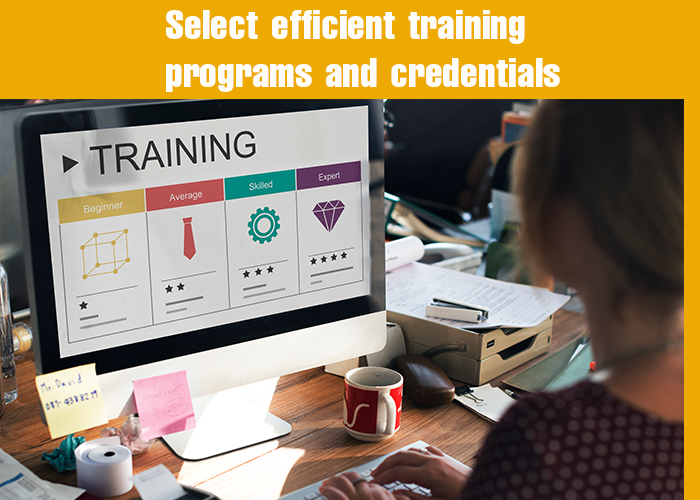Financial technology, or fintech for short, is the combination of finance and technology that is transforming money management, investing, and transactional processes. Blockchain technology, smartphone payment systems, and cashless transactions are a few examples. At the start of the twenty-first century, entrepreneurs started using cutting-edge technology to restructure traditional banking after realizing its inefficiencies. Besides this is how fintech was born. Today, the term “fintech” refers to a variety of businesses and services that have revolutionized investing and banking, opening doors for people working at the nexus of technology and finance.
Here we are sharing with you” How to Get into Fintech: An Ultimate Career Guide for 2024”
The Fintech Industry’s Ascent:
A job in the fintech sector is revolutionizing, not trendy. Still, the need for skilled workers in this field is growing as financial technology keeps changing how we manage our finances, conduct business, and make investments. However the future of finance is being transformed by an ecosystem of innovation, not simply a single sector.
The learning objective for fintech:
· Establish a base
· Determine the Possibility
· Become proficient
· Consider unconventional ideas.
· Realise all of your potential
Why would you want to work in the financial technology sector?

· Adaptable Possibilities
· At the Heart of Innovation
· High Demand
· High Benefits Worldwide Effect
What Benefits Can a Fintech Career Offer?
The fintech sector provides a broad range of professional options to suit a variety of backgrounds and skill sets. Then,Product development, software engineering, data analysis, cybersecurity, compliance, and more fields are all accessible to you. Moreover, fintech enterprises are diverse, ranging from start-ups to established financial institutions, technological corporations, and government agencies.
There will be plenty of opportunities for job progression as the fintech industry grows. The community is active and cooperative. It is possible to progress from entry-level jobs to more senior positions. Finally, the key competencies of fintech are extremely applicable to various sectors, including insurance (InsurTech), real estate (PropTech), and healthcare (HealthTech). With this flexibility, you can pursue other interests and improve your professional prospects even more.
Which Fintech Jobs Are the Most Demanding?
The fintech industry is expanding quickly, and there is a great need for qualified individuals in a range of positions, such as:
· Business development manager,
· Customer success specialist,
· AI/ML engineer, app developer, and
· Business operations manager
· Data Scientist,
· Engineer for DevOps
· Cybersecurity Analyst,
· Cyber Fraud Investigator
· Insurance Lawyer Fintech Analyst
· Financial Analyst Product Manager
· Underwriter UX/UI
· Designer Product Manager
· Risk and Compliance Manager
How Do You Go About Becoming a Fintech Expert?

There are several crucial actions and tactics you can use to break into the fintech industry, regardless of whether you’re an experienced professional seeking to switch industries or a recent graduate ready to start a thrilling new career. These pointers can help you get started in the field of fintech.
Learn the essential fintech skills:
Without a doubt having the necessary abilities is essential if you want to work in the fintech industry. Industry specialists are recognized for their inventiveness and spirit of entrepreneurship, and in fact they frequently possess expertise in both technology and finance. Still, you’ll need a solid foundation in technical abilities, like as programming, data analytics, and artificial intelligence, to stand out in the employment market. Soft skills like teamwork, communication, and problem-solving are also very important. Besides, Keep up with the newest trends and advancements, as new technology arises and the fintech sector develops quickly. Now, creating a comprehensive CV that highlights your experience and qualifications can help you be hired for a junior position in this fascinating industry.
Make an outstanding résumé:
A compelling CV is essential for landing an entry-level fintech position. Now, Your resume should highlight your experience and financial acumen, along with any applicable degrees, certificates, or online certification programs you have taken. Though it might make a big difference to customize your resume to highlight your most applicable talents for the position you’re going for.
List the fintech companies you are most interested in:
Find fintech companies that fit your hobbies and professional aspirations first. Seek out businesses with a reputation for innovation, a sizable consumer base, and employment opportunities that are appropriate for recent graduates. Meanwhile to learn more about these businesses, make use of industry studies, employment search engines, and internet resources. Visit each company’s website to learn more about its culture, values, and job openings after you’ve made a list.
Make connections with experts in the fintech sector:
A crucial first step for anyone wishing to enter the fintech sector is networking with specialists in the field. Reaching out to alumni, interacting on LinkedIn, and attending fintech events can all open up new doors for you in the industry. However, one excellent approach to staying current on the newest trends in the fintech sector and networking with professionals in the field is to attend fintech conferences.
Transmit chilly emails:
At this time one strategy to aggressively pursue chances in the sector is to send out cold emails for jobs. So, Write a strong and succinct email that introduces you, states your interest in the organization, and highlights your experiences and abilities that are pertinent. In addition, make it clear that you want to talk about possible career possibilities or openings. Include your contact details and résumé in emails, and make sure they are kind and professional. Definitely if you don’t hear back from them, follow up and be ready to continue the conversation if they show interest.
Keep up with the most recent developments in fintech.:
Firstly, it is critical to develop a habit of continual learning if you want to keep current with emerging fintech developments. So, By subscribing to reliable industry news sources, blogs, and newsletters, you can acquire new skills. To receive real-time updates, you can also join online financial technology forums, follow business executives and financial technology companies on social networking sites like LinkedIn and Twitter, and go to fintech meetups and events. Current trends include, for instance:
a. The development of platforms for decentralized finance (DeFi).
b. The integration of cryptocurrency and blockchain technology into conventional finance.
c. The expansion of contactless payments and digital wallets.
d. The growing emphasis on green financial solutions and sustainability.
Select efficient training programs and credentials :

However, those looking for work in the fintech industry can acquire the necessary skills with the aid of several online courses and fintech certifications. These programs provide a competitive advantage over others in the labor market, industry recognition, and specialized training. Additionally, having credentials might help you network more easily, become more self-assured, demonstrate flexibility, and become conversant with crucial legal requirements. Additionally, they assist applicants with specializing in particular fintech fields, which increases their appeal to businesses looking for specialized knowledge
How to Pick the Fintech Course That’s Best for Your Career:
Lastly, It’s important to take your time choosing the best training program to make sure it fits your budget, learning preferences, and professional objectives. So, Here are some things to think about:
· Goal congruence
· Credibility and accreditation
· Curriculum and Content
· Qualifications for instructors
· Mode of delivery
· Length of course and flexibility
· Required conditions
· Evaluations and suggestions
· Expenses and grants
· Accreditation
· Assistance and assets
· Aid in finding a job
· Technical specifications
Conclusion:
Summing up are you eager to join the Fintech revolution? Now the Tech Jobs Fair is the first stop on your journey, where opportunities and dreams converge. However, all professionals who want to advance their careers, Next learn about innovative ideas, and connect with motivating individuals are welcome to attend. So fresh grads who want to pursue their aspirations or who want to improve their interviewing and workplace contact skills should definitely attend.

